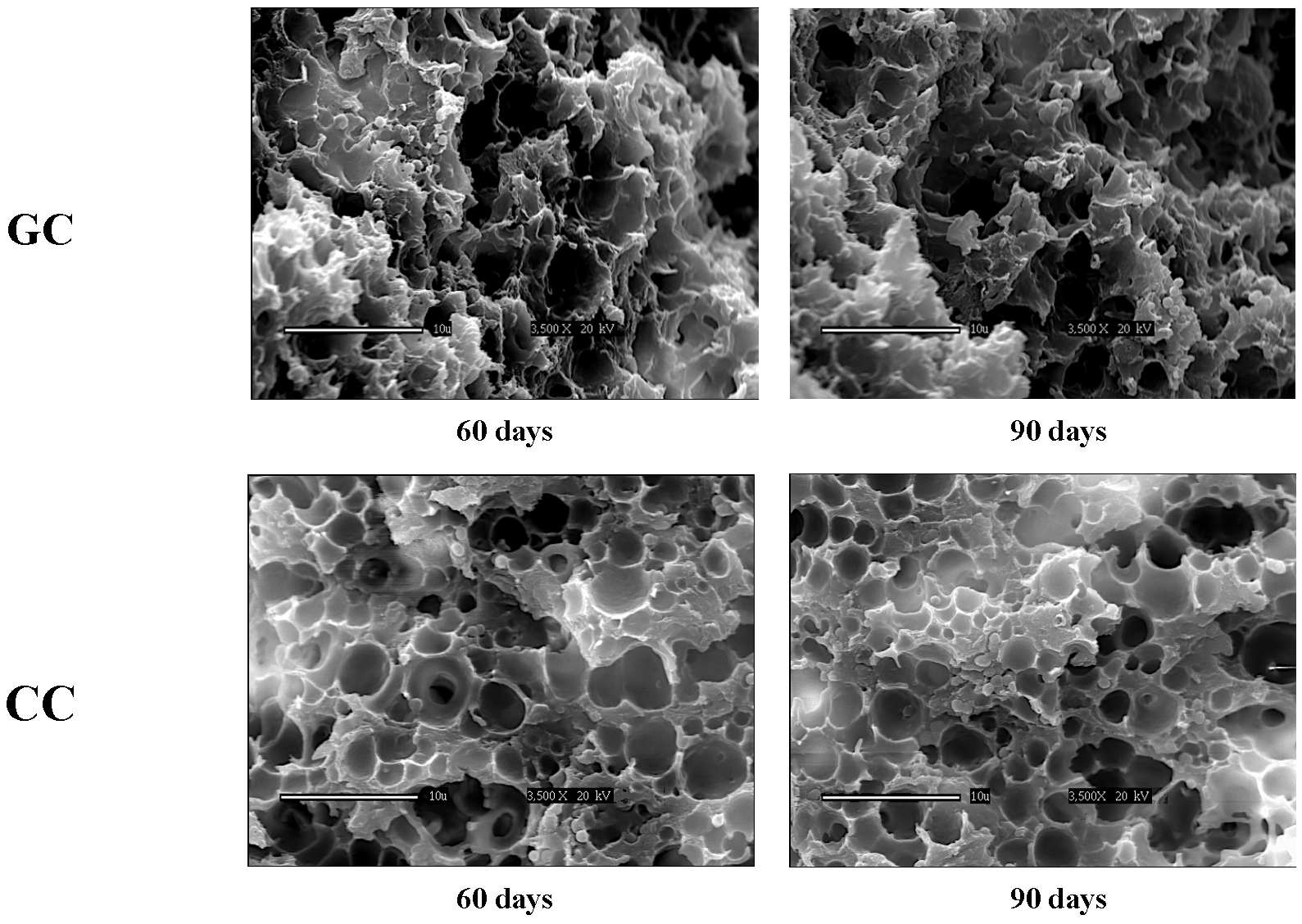 |
|
Cheeses made from goat’s milk have gained importance in some regions of Mexico, where their diversification of their use beyond traditional sweets has attracted the attention of scientists and food technologists. In this work, Mexican manchego-type cheeses made with goat´s milk (GC) at different stages of maturation (60 and 90 days) were subjected to physicochemical, texture (TPA), microstructure, rheological, and thermal characterization analysis. Comparisons with cheeses made with cow´s milk (CC, 60 and 90 days) were done. In general, GC showed lower texture values and viscoelastic properties, with higher melting capacity and lower resistance to deformation because of heat treatment, with respect to CC. In addition, differences were observed in the microstructure, texture, and thermal properties with respect to the maturation time and the type of milk used. The characteristics of the cheeses were influenced by the moisture content and the maturation time in the samples, thus decreasing the texture properties and thermal stability, as the moisture decreased and the maturation time increased. After analyzing the cheeses in the maturation time, valuable information can be obtained for the agroindustry, after defining what is the appropriate maturation time for the manchego-type cheese, made with goat's milk, to produce a structure that exhibits the rheological properties, texture and melting of greater acceptance by the consumer, for use in Mexican gastronomy.
Keywords: Goat´s milk, Mexican manchego-type cheese, microstructure, rheological properties, thermal analysis, TPA.
|
|
 |

